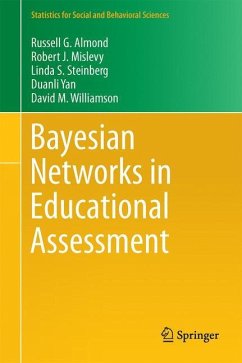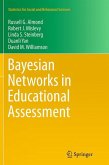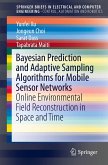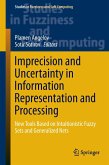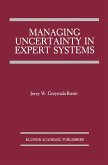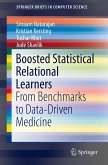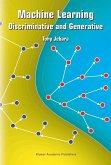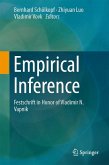Bayesian inference networks, a synthesis of statistics and expert systems, have advanced reasoning under uncertainty in medicine, business, and social sciences. This innovative volume is the first comprehensive treatment exploring how they can be applied to design and analyze innovative educational assessments.
Part I develops Bayes nets' foundations in assessment, statistics, and graph theory, and works through the real-time updating algorithm. Part II addresses parametric forms for use with assessment, model-checking techniques, and estimation with the EM algorithm and Markov chain Monte Carlo (MCMC). A unique feature is the volume's grounding in Evidence-Centered Design (ECD) framework for assessment design. This "design forward" approach enables designers to take full advantage of Bayes nets' modularity and ability to model complex evidentiary relationships that arise from performance in interactive, technology-rich assessments such as simulations. Part III describes ECD,situates Bayes nets as an integral component of a principled design process, and illustrates the ideas with an in-depth look at the BioMass project: An interactive, standards-based, web-delivered demonstration assessment of science inquiry in genetics.
This book is both a resource for professionals interested in assessment and advanced students. Its clear exposition, worked-through numerical examples, and demonstrations from real and didactic applications provide invaluable illustrations of how to use Bayes nets in educational assessment. Exercises follow each chapter, and the online companion site provides a glossary, data sets and problem setups, and links to computational resources.
Part I develops Bayes nets' foundations in assessment, statistics, and graph theory, and works through the real-time updating algorithm. Part II addresses parametric forms for use with assessment, model-checking techniques, and estimation with the EM algorithm and Markov chain Monte Carlo (MCMC). A unique feature is the volume's grounding in Evidence-Centered Design (ECD) framework for assessment design. This "design forward" approach enables designers to take full advantage of Bayes nets' modularity and ability to model complex evidentiary relationships that arise from performance in interactive, technology-rich assessments such as simulations. Part III describes ECD,situates Bayes nets as an integral component of a principled design process, and illustrates the ideas with an in-depth look at the BioMass project: An interactive, standards-based, web-delivered demonstration assessment of science inquiry in genetics.
This book is both a resource for professionals interested in assessment and advanced students. Its clear exposition, worked-through numerical examples, and demonstrations from real and didactic applications provide invaluable illustrations of how to use Bayes nets in educational assessment. Exercises follow each chapter, and the online companion site provides a glossary, data sets and problem setups, and links to computational resources.
"The three parts of the book give an excellent overview of current developments and the status of a still developing and emerging field. In this way, it helps researchers in psychometrics and educational assessment to familiarize themselves with Bayesian networks, and their applications. ... The targeted audience of the book seems to focus on students at the graduate level. In this way, it is written for a large audience, and it suits the needs of many researchers." (Nikky van Buuren, Sebastiaan de Klerk and Bernard P. Veldkamp, Psychometrika, Vol. 82, 2017)
"This book will provide valuable information on using data-mining along with graphical models in educational assessment. It is one of the initial works that well explain the operative procedures of designing, validating, and implementing the data-driven, competency-oriented diagnostic assessment. The book should be a good reference for both scholars and practitioners in the areas of educational assessment, learning environments and curriculum design, and school improvement." (Fengfeng Ke, Technology, Knowledge and Learning, Vol. 24, 2019)
"This book will provide valuable information on using data-mining along with graphical models in educational assessment. It is one of the initial works that well explain the operative procedures of designing, validating, and implementing the data-driven, competency-oriented diagnostic assessment. The book should be a good reference for both scholars and practitioners in the areas of educational assessment, learning environments and curriculum design, and school improvement." (Fengfeng Ke, Technology, Knowledge and Learning, Vol. 24, 2019)

